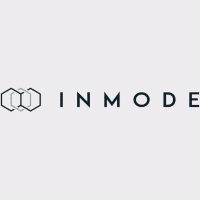
Introduction
Are you looking for innovative ways to improve patient education and communication in your psychiatry practice? In this digital age, leveraging online channels can be the key to connecting with your patients effectively and ensuring they receive the support they need. In this blog post, we will explore how psychiatry practices can harness the power of digital platforms to educate and connect with patients. Whether you are a seasoned practitioner or just starting your practice, these insights can help you enhance patient care and overall satisfaction.
The Power of Digital Channels in Psychiatry Practices
With the widespread use of smartphones, social media, and online platforms, the digital landscape has transformed how we communicate. This revolution also extends to healthcare, including psychiatry practices. Embracing digital channels can offer several benefits, such as:
Accessibility and Convenience for Patients
Digital channels break down geographical barriers and time constraints, providing patients with easy access to information and resources at their fingertips. Patients can seek guidance, schedule appointments, and access educational materials without physical visits, making mental health support more accessible.
Enhanced Patient Education
Educating patients about mental health conditions and treatment options is crucial for promoting self-awareness and reducing stigma. Digital platforms allow psychiatry practices to share informative content, blogs, videos, and infographics, giving patients and their families valuable insights.
Facilitating Patient-Provider Communication
Digital communication channels, such as telemedicine platforms and secure messaging systems, enable psychiatrists to interact with their patients remotely. This fosters regular communication, allows for quick check-ins, and ensures patients can seek guidance during critical moments.
Utilizing Social Media for Mental Health Awareness
Social media has become a ubiquitous part of modern life. By leveraging these platforms effectively, psychiatry practices can create awareness, educate the public, and engage with their patients in new ways.
Promoting Mental Health Awareness Campaigns
Social media offers a cost-effective, far-reaching platform for running mental health awareness campaigns. From posting informative content to sharing success stories, psychiatry practices can break the silence surrounding mental health issues and encourage open conversations.
Offering Support and Encouragement
Building a supportive online community can immensely benefit patients seeking reassurance and encouragement. By sharing uplifting messages, helpful resources, and testimonials, psychiatry practices can create a safe space for patients to interact and connect with others on their mental health journey.
Addressing Misinformation and Stigma
The internet is awash with misinformation about mental health. Psychiatry practices can combat this by sharing accurate information, debunking myths, and providing evidence-based resources. By doing so, they reduce the stigma associated with mental health conditions.
Telepsychiatry: Breaking Barriers in Patient Care
Telepsychiatry, a branch of telemedicine, has emerged as a game-changer in the mental health field. By harnessing digital technology, telepsychiatry overcomes traditional barriers and offers numerous advantages.
Increased Access to Mental Health Services
Telepsychiatry enables patients, particularly those living in remote or underserved areas, to access mental health services without the need to travel long distances. This increased accessibility can lead to early intervention and better outcomes for patients.
Flexible Appointment Scheduling
For many patients, scheduling appointments during regular office hours can be challenging due to work or other commitments. Telepsychiatry offers more flexibility in appointment scheduling, allowing patients to receive care at more convenient times.
Continuity of Care
Maintaining continuity of care is crucial during crises or unexpected events. Telepsychiatry ensures that patients can still connect with their psychiatrists, even when in-person visits are impossible, providing a safety net for ongoing support.
Online Mental Health Support Groups
Support groups have long been valuable resources for individuals coping with mental health challenges. The advent of digital platforms has taken these support groups to a whole new level.
Connecting Patients with Similar Experiences
Online support groups enable patients to connect with others who share similar experiences, creating a sense of belonging and understanding. This camaraderie fosters empathy and mutual support among participants.
Anonymity and Privacy
For some patients, discussing personal struggles openly can be intimidating. Online support groups offer anonymity that allows individuals to share their thoughts and feelings without fear of judgment, promoting open and honest discussions.
24/7 Accessibility
In traditional support groups, interactions are limited to scheduled meetings. Online support groups break these barriers by providing 24/7 accessibility, allowing patients to seek support whenever needed.
The Role of Mental Health Apps
The prevalence of smartphones has led to a surge in mental health applications. These apps offer many features to enhance mental well-being and support patients daily.
Mindfulness and Meditation Tools
Many mental health apps incorporate mindfulness and meditation exercises that help patients manage stress, anxiety, and depression. These tools can be powerful additions to traditional therapy, providing patients with practical coping strategies.
Mood Tracking and Symptom Monitoring
Mental health apps often include features that allow patients to track their moods and monitor symptoms over time. This data can be invaluable for both patients and psychiatrists in understanding patterns and progress.
Psychoeducation and Skill-Building
Mental health apps frequently offer psychoeducational resources and skill-building exercises, empowering patients to participate in their treatment and personal growth actively.
Conclusion
In today’s fast-paced world, psychiatry practices must embrace digital channels to stay connected with patients and offer accessible, informative, and supportive care. The digital landscape provides numerous tools to improve patient education and communication, from social media engagement to telepsychiatry and mental health apps.
At Growth99, we understand the importance of leveraging digital platforms to enhance patient care. Our mission is to help psychiatry practices thrive in the digital age by providing comprehensive digital marketing solutions tailored to their unique needs. To learn more about how we can support your practice, Together, let’s shape a brighter future for mental health care through the power of digital innovation.




























